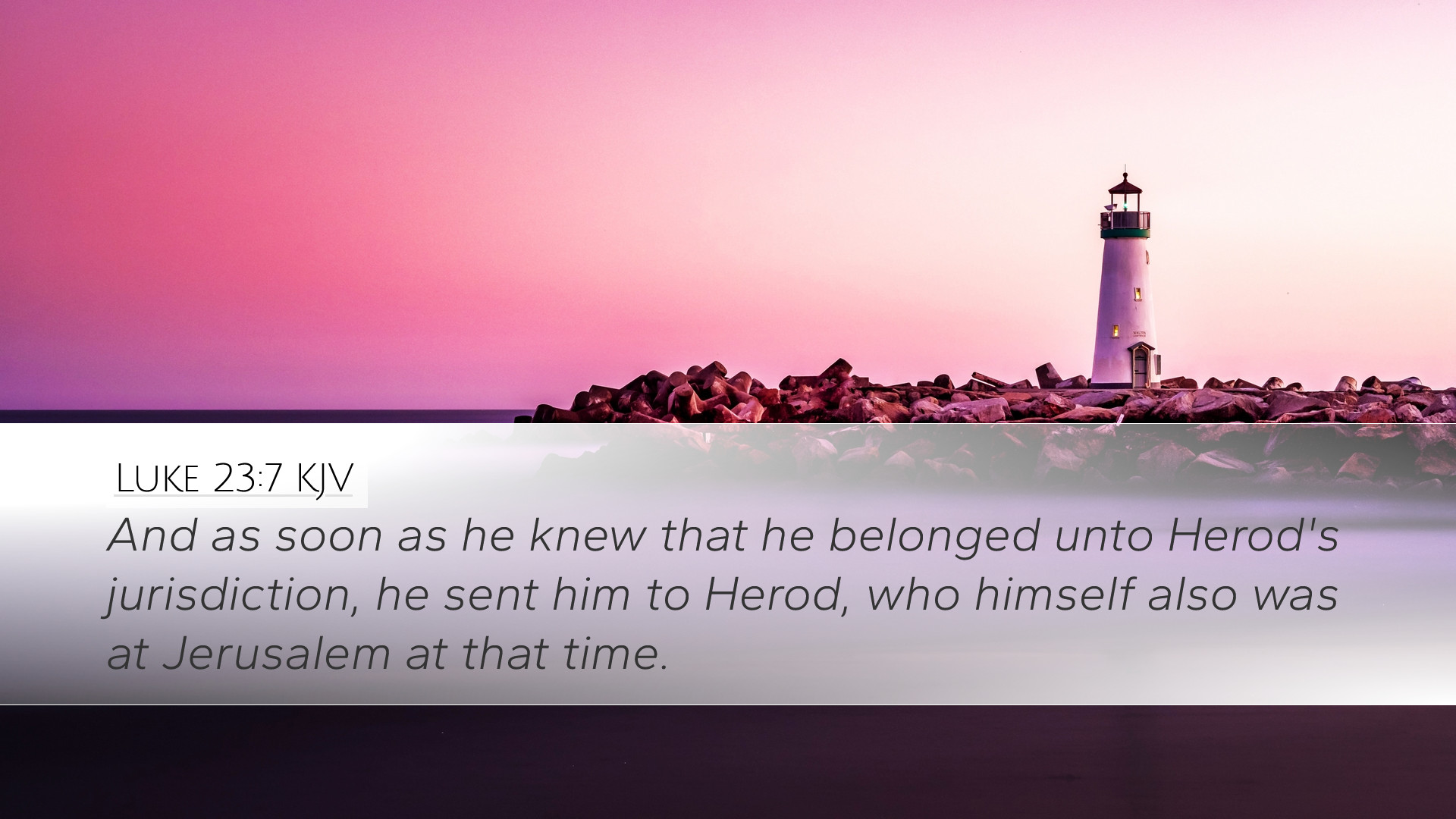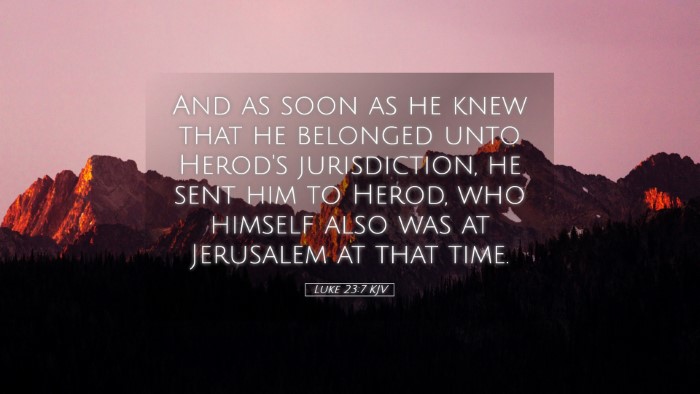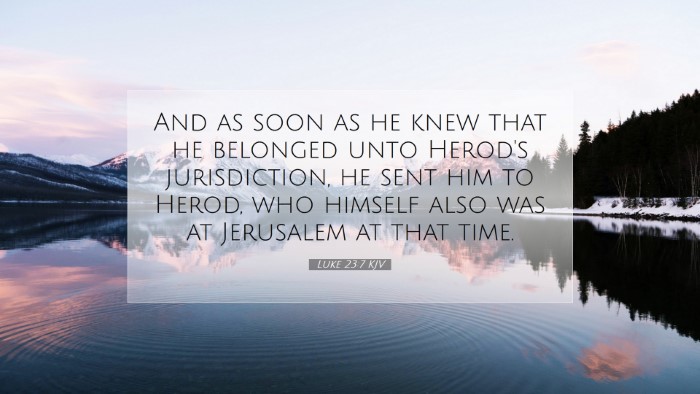Commentary on Luke 23:7
Bible Verse: "And when he knew that he belonged unto Herod's jurisdiction, he sent him to Herod, who himself was at Jerusalem at that time." (Luke 23:7)
Introduction
The passage in Luke 23:7 holds significant theological and interpretive weight, particularly in the context of Jesus' trial before His crucifixion. In this moment, Luke presents a crucial interaction involving Herod Antipas, reflecting both the political maneuvering of the time and the fulfillment of God's sovereignty in the events leading to the cross.
Context and Background
Prior to this moment, Jesus had been arrested and brought before Pilate, the Roman governor. The mention of Herod is vital as it underscores the political dynamics influencing Jesus' trial. Herod's jurisdiction extended over Galilee, where Jesus conducted much of His ministry, making Him a relevant figure to this account.
Historical Context
As noted by Matthew Henry, Herod Antipas was a ruler known for his involvement in the brutal executions during his reign, including that of John the Baptist (Matthew 14:1-12). This background adds a layer of complexity to the narrative, as Jesus, the innocent Lamb of God, is being treated like a criminal in front of rulers whose morals were questionable at best. Such circumstances highlight the depth of Jesus' suffering and the injustice surrounding His trial.
Political Significance
Albert Barnes further elaborates on the political implications of this verse. By sending Jesus to Herod, Pilate aimed to absolve himself of responsibility for the decision concerning Jesus' fate. This act of passing Jesus to Herod illustrates a significant moment of evasion—both of Pilate's authority and the moral responsibility he held as a judge. This maneuvering illustrates how political agendas can obscure justice.
Theological Insights
The transition of Jesus to Herod is laden with theological meaning. Here, we can draw insights concerning the sovereignty of God in the unfolding events of the Passion. Adam Clarke points out that the various trials that Jesus underwent serve to manifest God's redemptive work. Ultimately, the decision of Herod and Pilate does not thwart God’s plan; rather, it plays a pivotal role in His divine purpose of salvation through Christ’s sacrifice.
Sovereignty of God
The choice to send Jesus to Herod was not simply a political decision but was orchestrated within God's providence. As commentators have highlighted, the intricate details of the Passion narrative reach deep into themes of divine foreknowledge and purpose. This event exemplifies the truth that even amidst human folly and injustice, God's redemptive plan continues unhindered. This aspect can be an anchor for believers amidst trials, mirroring Jesus’ own silence and trust in the Father's plan.
Lessons for Today
From this passage, several lessons emerge for pastors, students, theologians, and Bible scholars:
- Understanding Authority: Believers are reminded that earthly authority is under God's ultimate control. The interaction between Pilate and Herod illustrates the limitations of human power in light of divine sovereignty.
- The Model of Christ: Jesus' response to injustice is a powerful lesson in humility and submission to the Father's will. His silence in the face of false accusations invites followers to reflect on how they respond to injustice in their own lives.
- Justice vs. Injustice: The narrative prompts considerations of justice—how often human systems fail to deliver it. This reality may inspire rigorous engagement with issues of justice in the contemporary context.
- Preparation for Suffering: Jesus’ trial foreshadows the pain Christians may face for their faith. The reminder that He was sent to Herod after being judged by Pilate fuels a conversation about perseverance and faithfulness amidst suffering.
Conclusion
Luke 23:7 encapsulates a moment of profound significance in the Passion narrative. It is a convergence of political intrigue, injustice, and divine sovereignty. For pastors and theologians, this passage serves as a call to reflect on the nature of authority, the example of Christ, and the overarching narrative of redemption that transcends earthly trials. Each interaction leading to the crucifixion stands as a testament to God's ultimate control and the unfolding of His redemptive plan through Jesus Christ.


